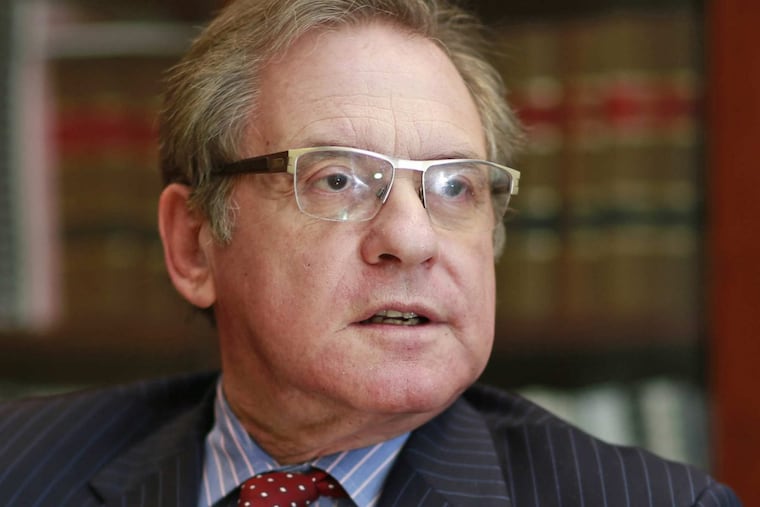Businesses losing money to soda tax, controller says
Nearly 60 percent of businesses surveyed say sales are down since city imposed its sweetened-beverage tax.

Businesses that sell sweetened beverages say that Philadelphia's soda tax has hurt their sales substantially, according to a survey that Controller Alan Butkovitz released Monday.
Of 741 businesses that responded, 88 percent of them reported at least some revenue loss, and nearly 60 percent reported declines of more than 10 percent since the tax went into effect in January, he said.
The tax on soda and other sweetened beverages has "needlessly impacted certain businesses in our city," Butkovitz said at an afternoon news conference.
The controller, who in the spring lost a Democratic primary race to retain his seat, has frequently spoken out against the city's 1.5 cents per ounce tax. He has met with the American Beverage Association, which is fighting against it. The tax remains hotly contested almost 10 months after it went into effect, and other cities are watching. Cook County, Ill., repealed a similar tax last week — just two months after it began.
Lauren Hitt, Mayor Kenney's spokeswoman, said Monday that Butkovitz's study was not impartial.
"We've also found that the tax has had many positive economic impacts, which this survey doesn't take into account," Hitt said. "And sadly, all of this progress would go away if the controller was successful in his efforts to repeal the tax."
Hitt said the economic benefits of the tax include expanded business and new jobs for pre-K centers, as well as new jobs and growth through the creation of community schools and a program for people to enter the building trades and the Rebuild program to improve parks, libraries, and recreation centers. The city also will work to include businesses owned by women, minorities, and people with disabilities as potential contractors for Rebuild projects, Hitt said.
Butkovitz said his survey was based primarily on interviews with business owners and that it had no involvement or input from the American Beverage Association. He said his office worked with neighborhood economic groups to identify businesses and go door-to-door to seek responses.
"After 33 years business is up for sale," said one anonymous survey response that Butkovitz read. "Fees on businesses in Philadelphia are out of control. People are going right across the border."
Among businesses surveyed, grocery stores reported the greatest revenue loss since the tax went into effect, Butkovitz said; one store in Hunting Park reported a 70 percent loss in business and said that instead of ordering 15 cases of beverages a week, it now gets only four or five. Broken down by zip code, businesses in some of the city's poorest areas reported the highest loss in revenue, Butkovitz said.
"This administration has minimized and ridiculed the idea that businesses are fighting for survival," Butkovitz said.
Citing other studies and experts who have cast doubt on the concept that the tax has a negative impact on business and leads to job loss, Hitt said Kenney is "of course very invested in the success of the city's businesses." The mayor's office points to wage tax collection data, for example, to suggest that the beverage industry has not lost as many jobs as it has claimed.
Some businesses did indicate that they had seen no change in sales, Butkovitz said. About 1,600 businesses were contacted for the study.